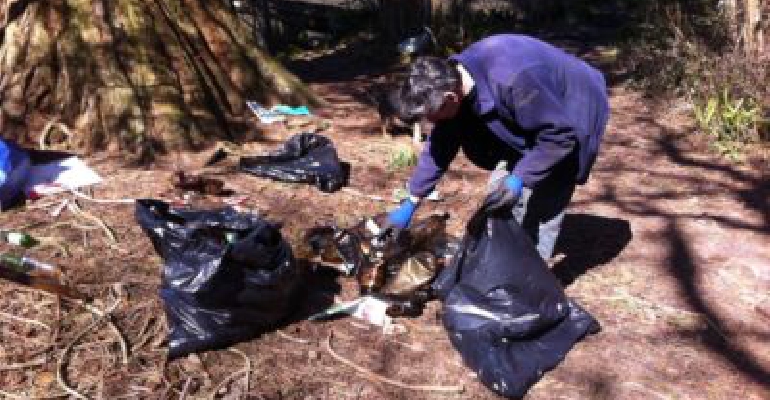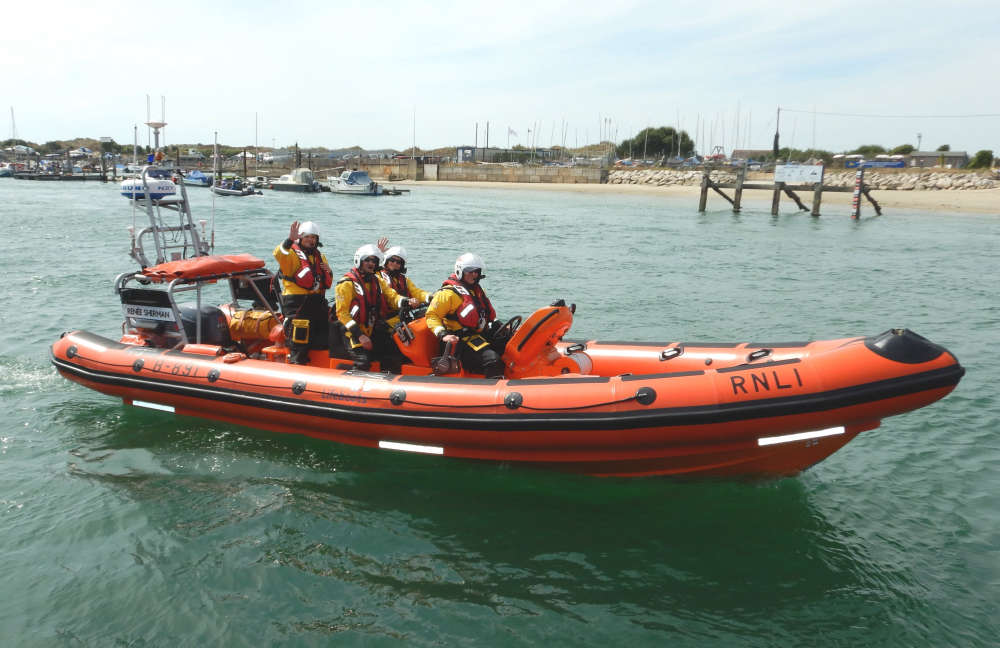
More than 300 reports of animals caught or injured in litter have been received by the RSPCA in West Sussex over the past five years.
The animal welfare charity is urging people who are going out more since lockdown restrictions were eased to ensure they are taking their litter home with them or disposing of it properly and responsibly.
Over the past five years (2015-2019), the RSPCA's emergency hotline in England and Wales has received 6,466 calls about animals affected by general litter - like tin cans, plastic bottles and elastic bands.
Nationally, there have also been 15,183 reports relating to animals injured or caught in angling litter.
There have been a further 12,904 reports of animals and birds trapped in netting in the UK, which includes netting discarded as rubbish but this also includes sports netting or netting put on bushes or trees to deter birds.
The charity's frontline officers are regularly called to help cats, birds and wildlife who have got themselves tangled in netting, injured in fishing litter or stuck in rubbish, whether it's a fox with a tin can stuck on its head or a seal with fishing netting wrapped around its neck cutting into the flesh.
Head of the RSPCA's wildlife team Adam Grogan said:
"Our staff are dealing with thousands of incidents every year where animals and birds have been impacted by litter - and they're the ones that we know of. I'm sure for every animal we're able to help there are many that go unseen, unreported and may even lose their lives.
"Litter is one of the biggest hazards our wildlife faces today - and it's something that's very easy to resolve. That's why we're calling on the public to take extra care to clear up after they've been out for a walk or enjoyed a picnic in the woods.
"Now that the Government has eased some of the lockdown restrictions, we're sure lots of families will be out and about in nature. But it's our job to protect nature and that includes properly and responsibly disposing of our litter so that animals can't be hurt."
As well as everyday rubbish, the RSPCA also sees many animals arriving into our care with terrible injuries caused by angling litter such as discarded fishing line and plastic netting.
Waterfowl and seals are often admitted to the RSPCA's four wildlife centres with nasty wounds caused by fishing hooks, line and netting.
Adam added:
"Animals who get their heads or necks stuck in litter can suffer severe injuries as they struggle to break free and can even suffocate, while others will slowly grow weaker and weaker as they try to hunt or find food or water.
"Others will get fishing line or netting cutting deep into their skin, affecting circulation and with wounds becoming seriously infected. These hazards can very quickly become a matter of life or death for these animals and action is urgently needed to tackle this problem head-on. It's up to every one of us to do our bit in the war against litter."
Adam added:
"The majority of anglers do dispose of their litter properly and it is frustrating that those who don't possibly don't realise how dangerous it is to animals. Discarded line in particular is a terrible hazard for wildlife, particularly as it can be almost invisible.
"We strongly urge those who enjoy fishing to be extra cautious to make sure nothing is left behind. Most anglers are very responsible when disposing of their litter, but it only takes one careless person to endanger the life of an animal. We ask that all those who enjoy fishing to follow the Angling Trust Take 5 campaign and make use of the recycling scheme to dispose of their waste tackle.
"If members of the public see discarded litter we would encourage them to pick it up safely and put it in the bin, remembering to wash their hands after. Their action could save an animal's life."
More Radio is continuously dedicated to providing a quality news service on-air and online, reporting local stories that matter across Sussex.
If you found this story useful, then check out our home page at moreradio.online where you can find the latest from the county, along with features and competitions from our presenters, as well as listening to the station live.
You can also sign up to our news alerts to receive updates on new stories. Simply click on the bell at the bottom right of the home page. This will then allow a pop-up which will ask if you would like to receive alerts. Press ‘allow’ and you’re all signed up!


 New Volunteer Launch Authority Officer Sought For Littlehampton RNLI
New Volunteer Launch Authority Officer Sought For Littlehampton RNLI
 Investigation Started Following Unprovoked Attack On Teen Girl In Brighton
Investigation Started Following Unprovoked Attack On Teen Girl In Brighton
 Third Arrest Made In Connection With Fatal Stabbing Of Bexhill Woman
Third Arrest Made In Connection With Fatal Stabbing Of Bexhill Woman
 Investigations Ongoing After Teen Dies In Uckfield Crash
Investigations Ongoing After Teen Dies In Uckfield Crash
 40 Year Old Badly Hurt Following Serious Collision In Brighton
40 Year Old Badly Hurt Following Serious Collision In Brighton
 Mother's Plea For More SEND Support In Brighton and Hove
Mother's Plea For More SEND Support In Brighton and Hove
 West Sussex Service Supporting Children's Mental Health Celebrates Five Years Of Action
West Sussex Service Supporting Children's Mental Health Celebrates Five Years Of Action
 Disruption To Rail Services As Works Get Underway This Weekend
Disruption To Rail Services As Works Get Underway This Weekend
 23 Year Old Suffers Serious Wounds After St Leonards Knife Attack
23 Year Old Suffers Serious Wounds After St Leonards Knife Attack